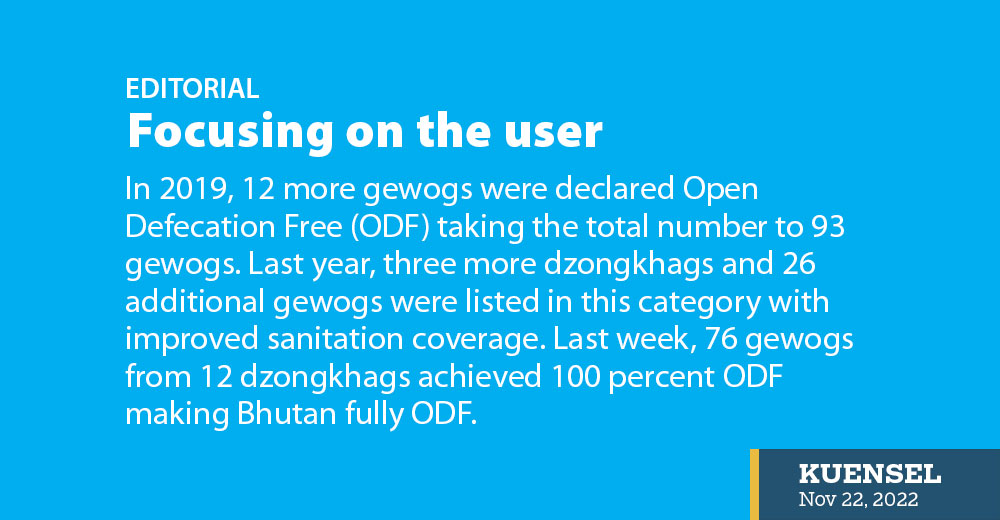In 2019, 12 more gewogs were declared Open Defecation Free (ODF) taking the total number to 93 gewogs. Last year, three more dzongkhags and 26 additional gewogs were listed in this category with improved sanitation coverage. Last week, 76 gewogs from 12 dzongkhags achieved 100 percent ODF making Bhutan fully ODF.
The elimination of open defecation is recognised as a top priority for improving the health, nutrition, and productivity of developing country populations and is explicitly mentioned in SDG target 6.2.
World Health Organisation (WHO) defines open defecation as the practice of defecating in fields, forests, bushes, bodies of water, or other open spaces.
As one of the essential components of improving public health is to provide improved sanitation for all as a matter of priority. The prevalence of sanitation and hygiene-related diseases such as diarrhoea and dysentery remained in the top five communicable diseases over the last decade. This was mainly due to the practice of predominantly simple pit toilets.
According to the 2017 Population and Housing Census of Bhutan (PHCB), Gasa dzongkhag recorded the lowest proportion of households with improved sanitation facilities at 55.1 percent, followed by Dagana at 59.8 percent.
In the process of rapid urbanisation across our towns, we also see semi-permanent structures mushroom on the outskirts and those crowded settlements negotiating with limited sanitation facilities. These settlements if we do not monitor and ensure proper facilities could be sources of disease outbreaks in the future.
We agree that priorities are changing in a society going through a severe transformation. After six decades of extremely rapid development our needs have changed and such improved sanitation facilities have become the basis of modern life.
Going by the trend we saw recently during the religious events at Kuenselphodrang, the habit to hit the bushes remains strong in us.
The ODF milestone is a major achievement given how far we have come. The focus must now be on the quality of facilities including those in our institutions.
If things slide and in case the tips threaten this milestone, this could increase the burden on the State’s exchequer as Bhutanese are entitled to free healthcare services.
For a start, we can have proper signboards to show the location of such public facilities in our towns. A visitor to Norzin Lam is forced to pretend as a customer to relieve oneself in one of the locked facilities. Or else, the only option is to rush down to Thimphuchhu.


